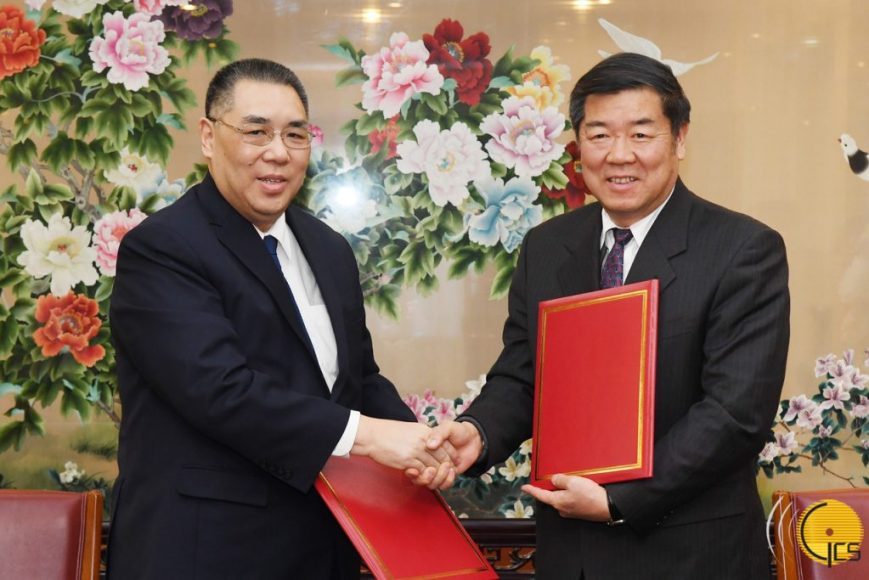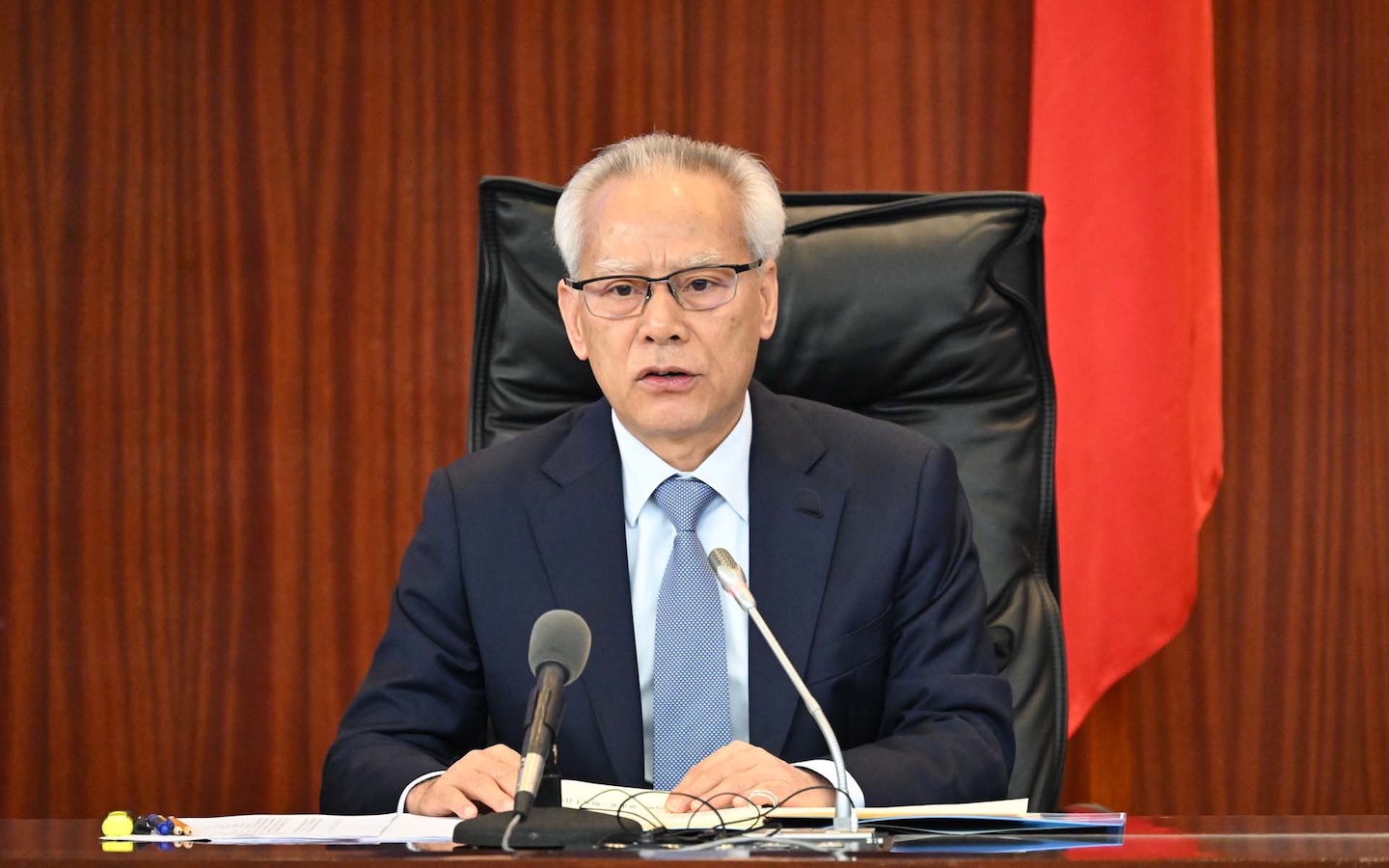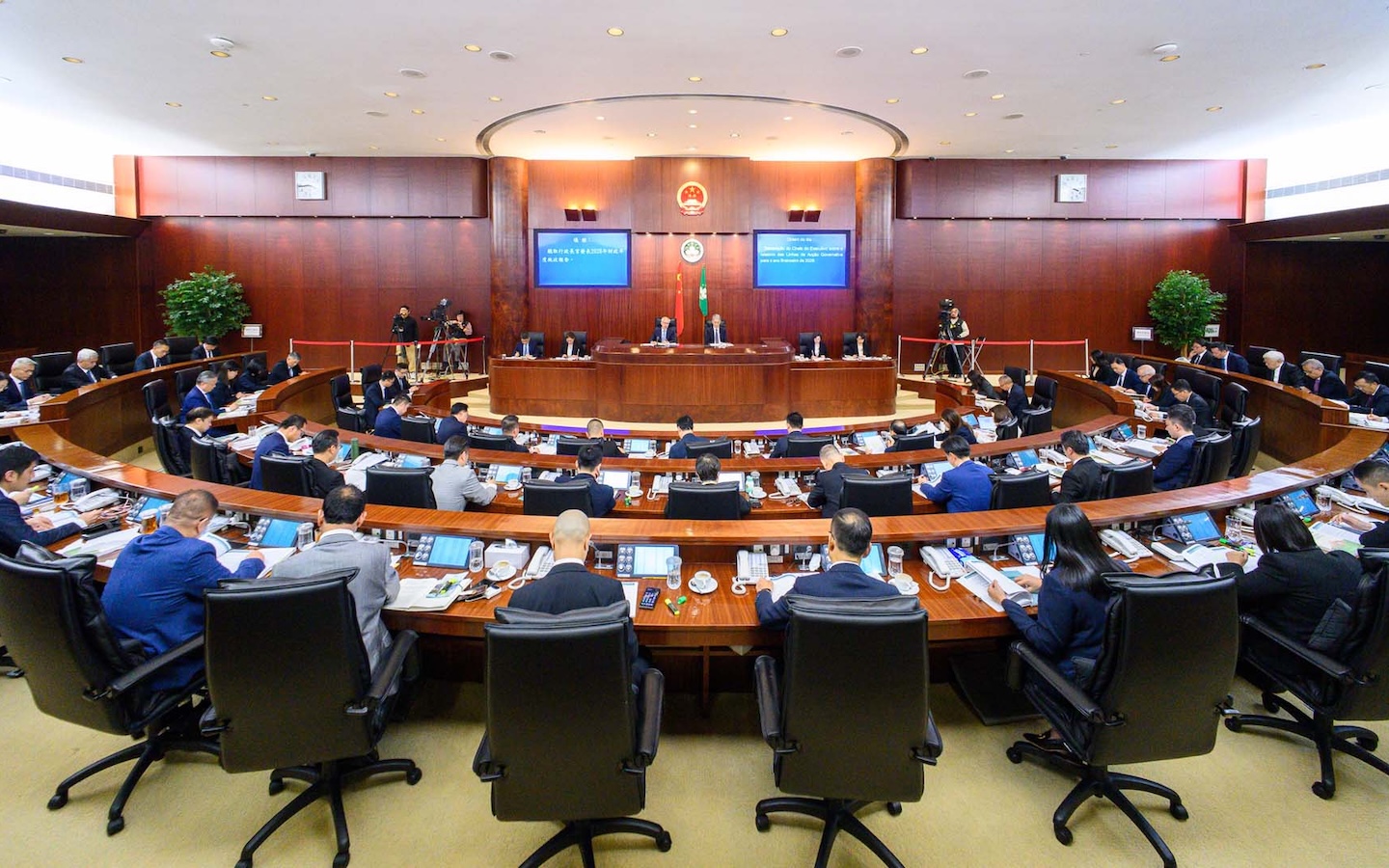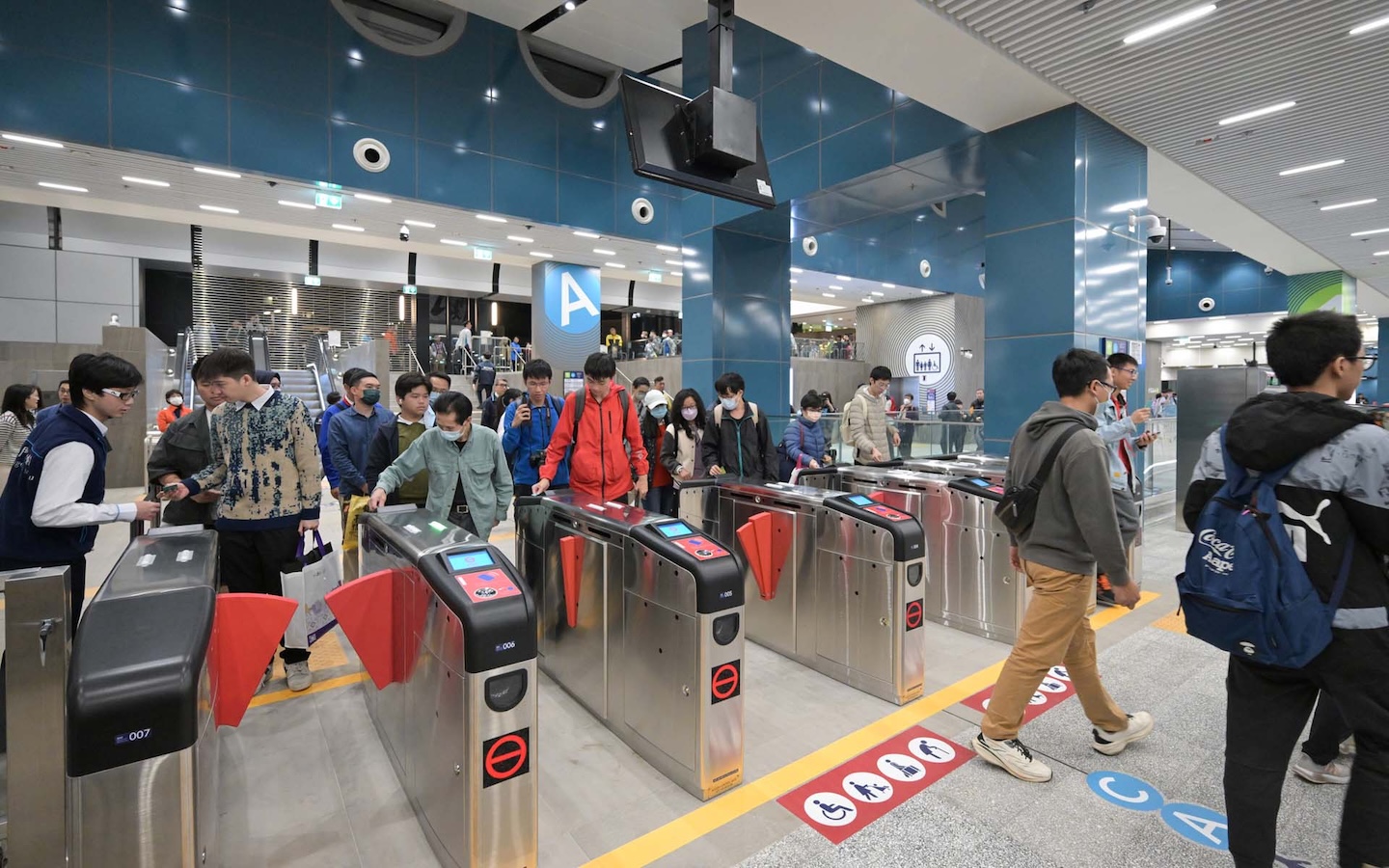With the agreement signed between the Macao government and the National Development and Reform Commission, Macao is ready to strengthen its participation in the Belt and Road Initiative.
In early December 2018, Chief Executive Chui Sai On and National Development and Reform Commission (NDRC) Chairman He Lifeng signed an agreement to support Macao’s “full participation and contribution to” the construction of the Belt and Road Initiative (BRI).
Officially known as the “arrangement,” it seeks to foster development and reform between the NDRC and the government of the MSAR, defining priority areas where Macao must decisively move forward and attain results. It also offers new clues as to the contribution expected from Macao, particularly in regard to the building up of the 21st Century Maritime Silk Road.
It aims “at giving full play to Macao’s strengths in serving the [BRI], and generating fresh competitive advantages for the city and its economy,” according to a statement from the Macao Government Information Bureau.
It comes as no surprise that a good deal of measures included in the arrangement are aimed at complementing Macao’s established strategic roles.
The arrangement clearly establishes that Macao will “organise the liaison between the service platform and the Belt and Road Initiative, clearing the path for further developments to take place.” A clear priority: development of Macao’s financial services to transform itself as a platform between China and the Portuguese speaking Countries (PSC), advancing the internationalisation of the yuan. There are no specifics on which financial services will be given priority, although previous statements by the Macao government point toward further development of financial leasing services, which play into the city’s financial strengths.
The MSAR government also announced significant fiscal incentives to boost economic ties between Macao and the PSC for private businesses, by exempting income earned or generated by Macao companies in PSC from payment of supplementary income tax in 2019.
Other areas covered by the arrangement include encouraging Macao’s participation in regional trade organisations, as well as non-sovereign international professional bodies; high-level forums and international-level exhibition relating to the promotion of BRI; developing Macao’s role as a base for multicultural exchange promoting Chinese culture; cultivating bilingual Portuguese-Chinese talents; and further promotion of the construction of the Guangdong–Hong Kong–Macao Greater Bay Area (GBA).
The most innovative aspect of the arrangement deals with Macao becoming an important modal transport, trade, and logistics centre in the Maritime Silk Road. This objective, not clearly indicated before, could take different forms since it implies moving people and cargo around in a network of connectivity linking the GBA with South East Asia and beyond. It also signals that tangible conditions will have to be built up for the purpose, based on historical legacies and immaterial condition the city already has. In fact, this purpose conveys in a single stream two features of Macao’s history, past and present.
In centuries past, Macao served as a trade hub and a node in the trade network linking China with North and South Asia, not to mention Europe by way of Portugal. Intriguing then that, a day before the signing of said arrangement, President Xi was in Portugal where both governments agreed on Portugal’s participation in the BRI. Xi said in Lisbon that “Portugal is the important junction that links the Silk Road and the Maritime Silk Road,” referring to the overland economic corridors and the sea route of the BRI.
In modern times, Macao’s relations with the peoples and countries of South East Asia is well known. The city is home to many families and businesses with links to a whole spectrum of cities and regions within this area, as well as strong and enterprising communities of mainly Chinese compatriots of Southeast Asian origin.
Chief Executive Chui described his May 2018 visit to the Southeast Asian nations of Cambodia and Thailand as “productive and fruitful, particularly in terms of expanding Macao’s contribution to the BRI” through these key partners. In June 2018, a delegation of mainland and Macao professionals and entrepreneurs in the construction sector visited Myanmar and Thailand seeking opportunities to cooperate and invest in infrastructure related projects.
The signing of this new agreement comes after lengthy, comprehensive consultations and background work developed by government and private think tanks, mostly linked or coordinated to higher education institutions and the Macao Foundation. The Macao Silk Road Association and the Institute of European Studies of Macau are among the organisations that contributed to the discussion of Macao’s role in the BRI.
The BRI is a comprehensive Chinese strategy of economic development and international cooperation, involving over 100 countries and organisations. Originally focused on building connectivity through massive investments in related infrastructure along six overland economic corridors to Europe and maritime routes through the Indian Ocean to Europe, other regions – including the PSC – could be integrated into the BRI in the near future.
The BRI is the cornerstone of China’s development strategy and foreign diplomacy, connecting its domestic economic development agenda with its engagement, at various levels, with the world economy. It is a grand multi-state cooperative project, involving multilateral and bilateral relations, economy, culture, security, and people-to-people dialogues.
With the newly signed arrangement moving into the implementation phase, observers are optimistic about the Macao government and private sector furthering the city’s active participation in the BRI as a way to promote economic diversification and international competitiveness, improving the economic wellbeing of its population.
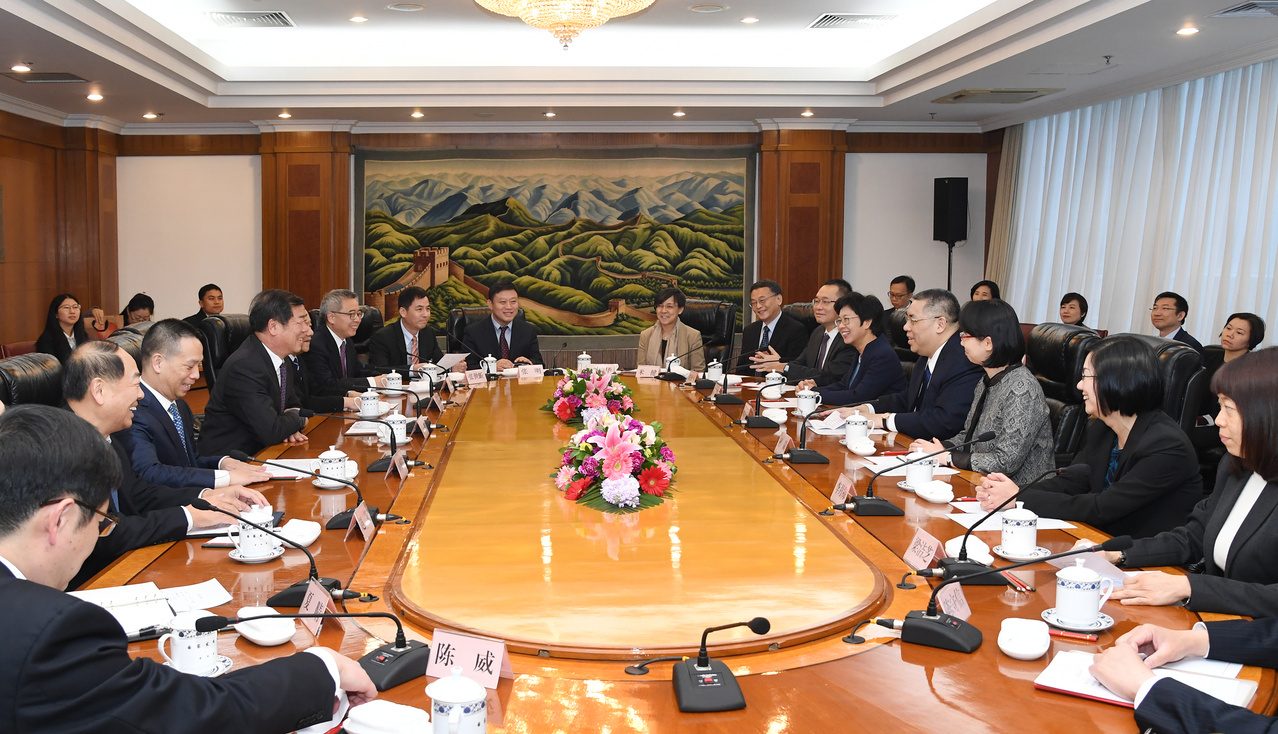
About the Author
José Luís Sales Marque is an economist, President of the Institute of European Studies of Macau and Vice-President of the Maritime Silk Road Association (Macau).
President Xi praises Macao’s role in national initiatives
TEXT Christian Ritter
President Xi Jinping, during a December 2018 meeting with Chief Executive Chui Sai On in Beijing, said that over the past year, the Macao government has improved the institutions and mechanisms for safeguarding national security and proactively taken part in the development of the GBA and in the BRI.
The president also said that the Macao government promoted the proper diversification of the local economy and improved the livelihood of the residents. He believes that the residents of Macao will seize the opportunities, expand the space of development, and foster new drivers of growth by integrating Macao’s own development into the development of China.
Xi recalled that, over the past year, the Macao government, under Chui’s leadership, has faithfully fulfilled its duties, been prudent and steady in its work style, and implemented the “one country, two systems” policy and the Macao Basic Law.
“The central government fully endorses the work by Chui and the MSAR government,” Xi said.
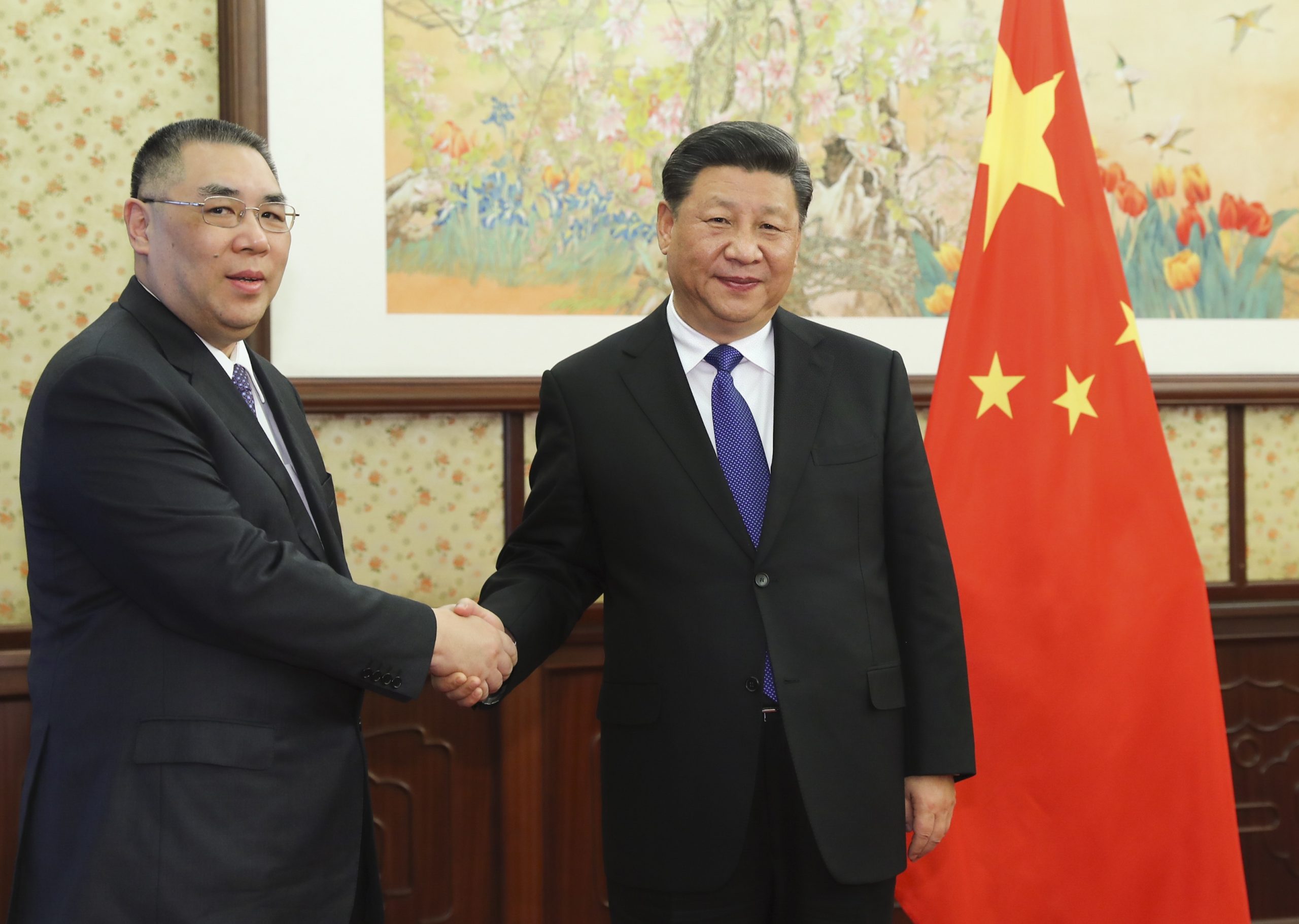
New deal strengthens role in the BRI
Ten days prior to the meeting with President Xi, the Macao government signed an agreement with the National Development and Reform Commission (NDRC) aimed at giving full play to Macao’s strengths in serving the BRI, and generating fresh competitive advantages for the city and its economy.
Chief Executive Chui and NDRC Chairman He Lifeng signed the deal in Beijing, after which the two sides held the first joint conference to coordinate works under the new agreement.
Under the document signed, Macao is to become as a major transport hub and important logistics centre of the 21st Century Maritime Silk Road.
The arrangement is aimed at complementing Macao’s strategic roles as a world centre of tourism and leisure, and as a commercial and trade cooperation service platform between China and Portuguese-speaking countries (collectively known as the Centre and Platform policies). These roles complement the overall development of the BRI.
High-level forums and international-level exhibitions themed on topics relating to the BRI will be held in Macao. The arrangement also seeks to help develop Macao’s role as a base for multicultural exchanges and cooperation with the goal of further promoting Chinese culture.
Macao will receive backing from the central government to develop as an incubator for cultivating talents proficient both in Chinese and Portuguese.
The Macao government officials outlined the progress of work relating to the city’s contribution to the BRI during the conference, where several ideas and policies designed to advance such an effort were proposed.
According to the agreement, the NDRC and other central authorities will remain in close touch with the Macao government in order to implement policies outlined in the arrangement and to support Macao’s participation in, and contribution to, the BRI.
Speaking after the signing, Chief Executive Chui said that the agreement paved a clear path for Macao’s contribution to the BRI and provided new impetus for Macao’s economic development.
Chui pledged that the local government would spare no effort in advancing cooperation with Guangdong and Fujian provinces, concerning joint contributions to the BRI, while also encouraging further involvement from Portuguese-speaking countries regarding the Chinese initiative.
